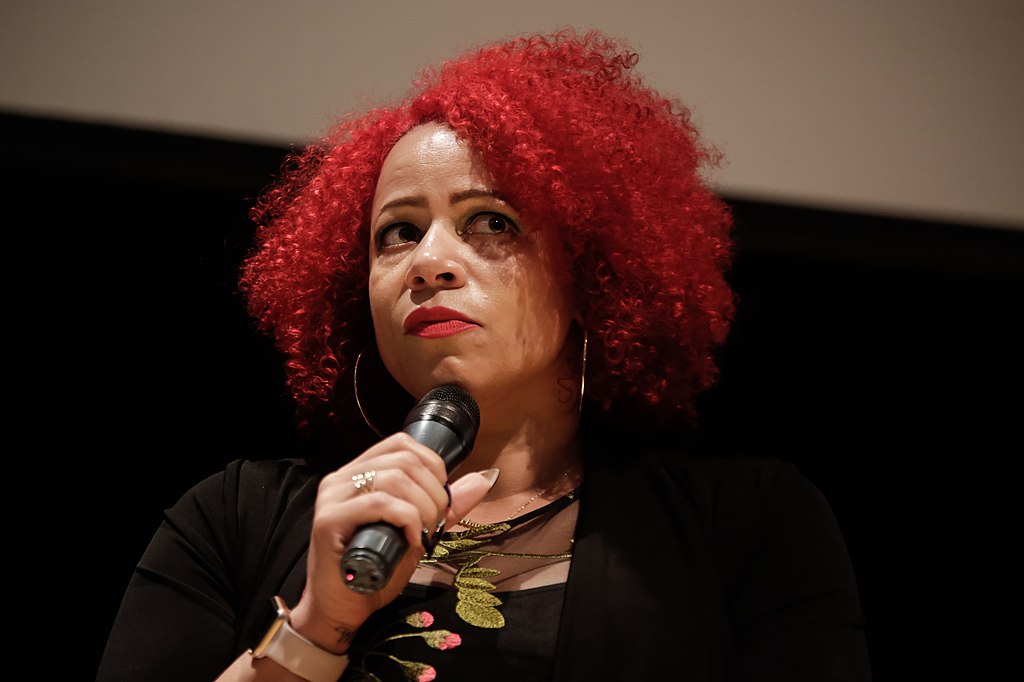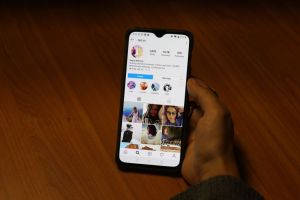The New York Times’s 1619 Project is meant to be all about details that, it alleges, were ‘conveniently left out’ of America’s ‘founding mythology’. But should its Pulitzer-winning curator, Nikole Hannah-Jones, worry more about the details she’s been slipping in? And what’s the relationship between the Times’s 1619 Project and 1619 Enterprises, a company for whom Hannah-Jones’s techie partner, Faraji has supposedly worked?
When she’s not explaining how destroying property isn’t violence on national television or circulating conspiracy theories about fireworks, Hannah-Jones is giving puff interviews, like this one to Glamour in May, in which she endorsed some of her favorite products.
‘I definitely have my bourbon every night — I like High West and I like Four Roses Small Batch — but it is not helping me sleep,’ Hannah-Jones said. ‘I think a lot of people know that I like bourbon, so people send it to me.’
By naming products she likes, it seems Mrs Hannah-Jones may have come a-cropper of her newspaper’s editorial standards. The Times issues employees with a copy of Ethical Journalism: A Handbook of Values and Practices for the News and Editorial Departments. Cockburn keeps a copy at hand for when he needs a laugh. It says:
‘Except in reviews or columns published in The Times or on its website or appropriately voiced in authorized public appearances, staff members may not offer endorsements, testimonials or promotional blurbs for books, films, television programs or any other programs, products or ventures.’
But this wasn’t Hannah-Jones’s only plug in the interview. She was also quite specific about her love of Bath and Body Works, TJ Maxx, Marshall’s, and a number of branded skin-care products.
‘I am obsessed with the Bath and Body Works three-wick candle,’ she told Glamour. ‘Teak Mahogany is my favorite scent. Normally, they’re $25 each, so when Bath and Body Works has its $10 sale, I’ll buy a lot. I’ve got boxes of them downstairs, and even before this, I would burn them every night. I would come home from work, light one, and keep it lit until I went to bed, and that was kind of a signal that the work day was over.’
‘I’m an avid TJ Maxx, Marshall’s type shopper,’ she continued. ‘I spend a lot of time in the pajamas section.’
A note at the end of the article reads: ‘All products featured on Glamour are independently selected by our editors. However, when you buy something through our retail links, we may earn an affiliate commission.’
So Cockburn asked Hannah-Jones what was going on. Her response overflows with the literary elegance that makes the Times America’s greatest newspaper, whatever its readers think.
‘LOL. Let me first start with that. Are you a real reporter?
‘Glamour asked me what products I use and I told them. I did not endorse. I did not promote. It was an interview. That note at the bottom is their standard disclaimer and had nothing to do with me or my interview, which an actual journalist would know.’
The Times communications team didn’t respond to Cockburn’s request for comment.
But the fishiness doesn’t end there. Hannah-Jones’s husband Faraji says on his résumé that he worked for ‘1619 Enterprises’ as an ‘Independent Consultant/Technology Support Specialist’ from 2015 to 2018 — the period in which Hannah-Jones was working on the 1619 Project.
What exactly is 1619 Enterprises and how does it relate to the 1619 Project? No company by that name is registered with New York State or the SEC. According Faraji’s LinkedIn, from August 2017 to June 2018 his role was to ‘provide technology services for clients who need assistance in creating a digital presence (web and social media), maintaining communications with their customer base and technology-related support’.
[special_offer]
What a curious coincidence: at the same time Mrs Hannah-Jones was working on the 1619 Project at the Times, Mr Hannah-Jones seems to have been working for a business with a similar name. Mr Hannah-Jones didn’t respond to a request for comment. Mrs Hannah-Jones meanwhile, with her usual charm, replied:
‘1619 Enterprises does not relate to the 1619 Project, obviously. (A real reporter would just look up the business filing). The 1619 Project is a journalism project at the New York Times, as you are aware. No, my husband does not work for the NYT. Has never worked on the 1619 Project and was not paid by the 1619 Project nor the New York Times as his only relation to the project is to be married to me. Further, if he did it would not be any of your business. Print that.’
Will do, Nikole. But that doesn’t exactly clarify matters. Why did Mr H-J launch a similarly named commercial venture, and did Mrs H-J know what Mr H-J was up to?
It might not be Cockburn’s business, but if Mr H-J’s business was hoping to capitalize on Mrs H-J’s connection to the Times, then it’s not just their business: it’s the Times’s business too. Or maybe that’s something only real reporters need to know.


















